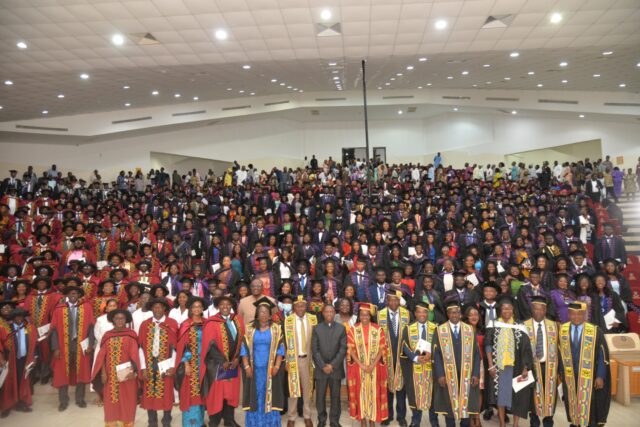The University of Ghana (UG) has dismissed claims that it collected over GHS11 million in graduation fees without providing medallions.
A statement from UG’s Public Affairs Directorate on February 17 labeled the reports misleading.
The university clarified that 15,776 graduands each paid GHS500, totaling GHS7,888,000—not GHS11 million as alleged.
The fee covered gown rental, congregation publication, medallions, scroll holders, souvenirs, water, and administrative expenses.
UG admitted that procurement delays affected the distribution of medallions and scroll holders but assured graduates of their delivery soon.
A February 10 notice had already informed graduates about the delay in receiving these items.
University of Ghana criticized news houses for publishing a sensational story without verifying readily available facts. Parts of the statement from the university read, “It is, therefore, unfortunate for Joy News to put out a sensational story without recourse to readily available facts. We urge the public to disregard these misleading reports and rely on official University communications for accurate information.”
The university urged the public to disregard misleading reports and rely on official communications for accurate information.
The Univerity of Ghana reaffirmed its commitment to maintaining high standards in all operations, including graduation ceremonies.
History of the University of Ghana
The University of Ghana (UG) was established in 1948 as the University College of the Gold Coast following recommendations by the Asquith Commission on Higher Education in British colonies.
The University College of the Gold Coast was officially founded to provide university education, learning, and research.
The university’s first principal, Mr. David Mowbray Balme, was instrumental in shaping its early development. His leadership established a strong academic foundation, fostering a community of scholars dedicated to excellence.
To ensure high academic standards, the British government set up an Inter-Universities Council, which advised UG on academic affairs and faculty appointments. This affiliation with British universities helped maintain rigorous academic standards and facilitated access to funding from the United Kingdom government.
Over the decades, UG has evolved into a world-class research-intensive university, producing graduates who contribute to national and global development.





















